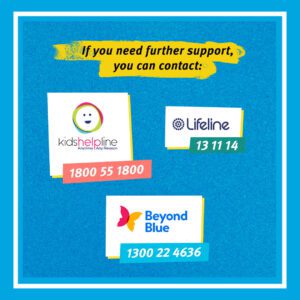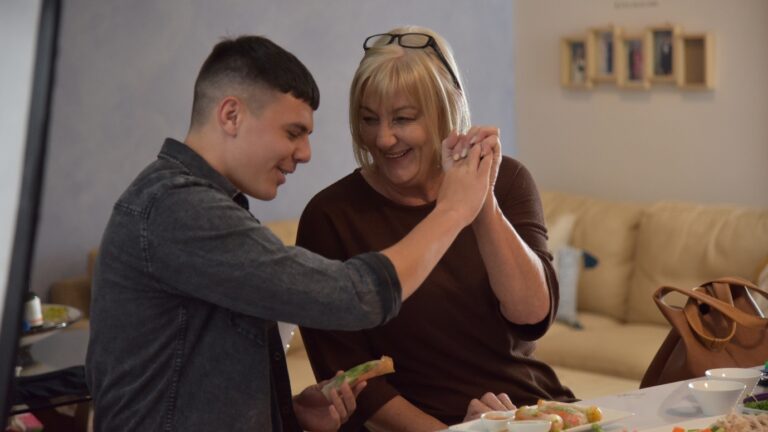Key Points
- Help your teen understand the changes in their brain.
- Encourage them to use their thinking skills to tackle problems.
- Discuss the positives and negatives of different choices.
- Talk about consequences and the need to accept responsibility for choices.
- If your teen is doing something that could harm themselves or others, please ensure they are safe and talk to a professional.
Good decision-making skills can help your teen make good choices and set them up for success later in life. Let your teen know that with practice and experience, they will get better at making good decisions and will feel more independent and empowered. Teens can face many challenges at school that require them to make choices, such as the transition to high school, selecting subjects, bullying, friendships, and exam stress. Good decision-making is an important skill for life so it pays to help your teen practise decision-making with something manageable like negotiating a new bed-time or picking an after-school sport to play. Here are five steps you can use with your teen to help them make good decisions about school and life.
1. Identify the decision
Helping your teen be clear about what they are trying to do or what problem they want to solve will help them make better choices. Explain to your teen that tackling a problem when they are calm and can use their thinking skills, not just their emotion, can help them make good choices. Help them understand how the teenage brain works so they can see how changes in their brain could affect their decision-making.
Help them unpack their emotions so they can tell the difference between a feeling and a fact and pinpoint why they feel the way they do. Explain that while feelings may feel very real and very strong, sometimes we can imagine things that are not real such as when we misunderstand someone’s reaction to something. Often just talking about how they feel can help your teen understand their emotions better. You could also gently ask some questions like:
- What feelings are you having right now?
- What is the strongest emotion you are feeling?
- When did you notice you were feeling this way?
To help your teen clarify the decision they need to make, suggest some questions for them to consider, like:
- What is the problem I am trying to solve?
- What is my goal?
- What is the best outcome I am aiming for?
2. Understand the options
Encourage your teen to brainstorm as many different options as possible and write them down. Teens can sometimes think there is only one solution to a problem so encourage them to be creative and come up with as many solutions as they can even if some don’t seem workable to you. Encourage your teen to record the positives and negatives of each option and don’t be judgmental – this step is about gathering ideas. It doesn’t matter if you think their idea is a little crazy; don’t shut it down. Instead, gently guide them by asking questions and pointing them to other information sources so they can work out it’s a bad idea on their own. Suggest they consider how the positives and negatives will look now and then further down the track.
For example, if your teen wants to drop out of school and get a part-time job, ask them to consider the longer term consequences by asking, ‘If you make that choice, how do you think your life will look in two years from now?’ and ‘What could your life look like in two years if you choose to stay at school?’.
Encourage your teen to take some time to research their options by talking to their friends, a trusted adult, or a Guidance Officer at school or by visiting a website like We the Differents that gives young people information to help them make the most of their education.
3. Make a decision
Allow your teen evaluate the different options with you there for guidance, support and encouragement. If you want to bring up a point, ask their permission first. Your teen is more likely to listen to a point you want to make if they have given you permission to share it. Suggest some questions they should consider when making a decision such as:
- Will it help me achieve my goal?
- Is it honest?
- Is it fair?’
- Will it create a problem for someone else?
- Is it safe?
Explain to your teen that making a choice also brings responsibility. As their parent, you need to make sure your child can handle the amount of responsibility they are taking on. Consider what your child is ready for (for example, taking the bus to school), what they are not ready for (for example, owning their own phone), and what they should be able to decide for themselves (for example, choosing their own clothes).
If your teen handles the responsibility the right way, praise them. If you don’t like their decision, try not to intervene unless you think your teen or someone else is in danger. Getting the chance to make a decision, while understanding the potential consequences, helps your teen to learn from experience and accept responsibility for their choices.
4. Act on the decision
Once your teen has made a decision, they’ll need your support to make it happen. Staying connected is essential so your teen knows you are there for them if they need you. While your teen may have felt ready for the decision they’ve made, they may find they’ve taken on more responsibility than they can cope with. If this happens, they’ll need you by their side to help them through it.
5. Reflect on the decision
Reflecting on a decision and how it turned out is a valuable learning opportunity. Find a good time to talk to your teen about what they learned in making their decision. Suggest some questions they could ask themselves such as:
- What did I learn about myself?
- What’s important to me?
- What was hard about what I did?
- What was easy about what I did?
- Next time I have to make a decision, what would I do the same?
- What might I do differently next time?
And don’t forget to praise your teen. Making decisions is hard and can be especially tough for teens given all the changes and pressures they are facing. When you praise their actions and acknowledge the way they have taken on responsibility, it will embolden them and encourage them to try again.
Make sure they are safe
If you believe your teen is at risk, or your teen mentions there is a threat to their safety or someone else’s, it is important you deal with this immediately. Keep calm, ask questions to assess the safety risk, and then get the help you need, without judging or blaming your teen. In this situation, keeping your teen close and letting them know you are there to help them really matters. It’s important your teen sees you dealing with this situation so they understand that protecting their safety and the safety of others is essential. Find out more about why teens make bad choices and how you can help your teen learn from their poor choices.

If your teen makes a poor choice at school
If your teen makes a poor choice at school, the school might contact you to discuss the consequences. In most situations, the consequence will reflect what is in the school’s Student Code of Conduct which you and your teen are likely to be familiar with. If your teen’s behaviour results in a consequence you consider to be unfair, or they are subject to a serious disciplinary consequence, you can talk to the school. If you are unhappy with the outcome after you’ve talked to the school, you can discuss it with your local regional office or, in some circumstances, lodge a formal appeal. Where appropriate, the regional office may work with you and the school to review what has happened.
Seek help if your child needs it
While it’s normal for teens to make poor choices, if your teen is doing something that could harm themselves or others and/or is illegal, consider talking to a professional to seek help. There may be underlying issues relating to anxiety, drugs or alcohol. If you are concerned about your child’s mental health and wellbeing, please contact Beyond Blue, eheadspace, Lifeline or KidsHelpline.
Last Updated: 22 February 2024





